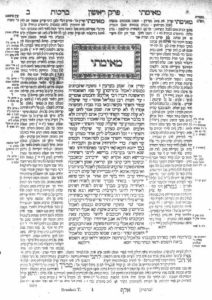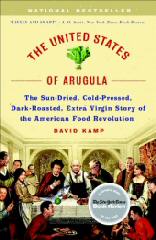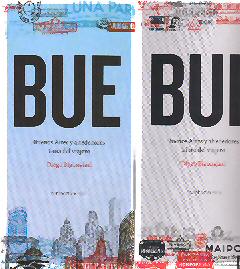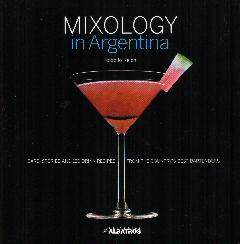Two Thousand Seven Hundred and Eleven Leaves
The Talmud. You might have heard of it, you might not. I grew up knowing that it existed, but within the Reform and Conservative Jewish traditions, it’s not something we spend a lot of time studying. We more or less stick with the Torah, the first five books of the Bible. If you’d have asked me, even a couple of days ago, what the Talmud is, I’d have said it was a collection of laws and commentary on the Torah. Turns out, that’s only partially right. It’s a collection of laws and commentary on Jewish life, back in the day, though it derives its essence from the Torah. I imagine it as a somewhat dry reading, but then, when one (or at least I) casually thinks about reading the Bible, that same thought comes to mind, though the reality is anything but – having read through it many a time in my life.
It looks daunting. It is daunting. You can see how it’s sort of divided into sections. If I understand it correctly, in the center is the heading, that part is obvious. It’s immediately followed below by the Mishnah, which is a written down version of the halakah, rabbinic law, as it was codified in the early 3rd century CE. Huh, I always assumed the Talmud was far older than that – that’s surprise number one, what’s known as the Babylonian Talmud, which is sort of the official one (I gather there’s an earlier one called the Jerusalem Talmud) came together in the 4th century. You can see that the style of writing changes about halfway down, and then lopes off into an L, that’s the Gemara, which is the rabbinical analysis on the Mishnah it follows, and is written in Aramaic. The inverted L to the upper right of this is Rashi, who was a medieval French rabbi who wrote, I gather, the single most authoritative and complete commentary on the entire Talmud and Torah. The L to the left and below is the Tosafot, commentary by rabbis and sages from roughly the 12th and 13th centuries. Some pages have another L outside of that one with more, and, I guess, lesser rabbinical commentaries, which would be placed below those margin notes on the left. Those margin notes are cross references to other texts for “further reading”. The margin notes to the right are – if at the top, further cross references, but ones that were added centuries later, and if down towards the bottom, “glosses”, or “short comments” by later rabbis who felt they had to get their two cents in – sometimes, apparently, useful, sometimes, cryptic. Did I mention, daunting?
I had vaguely heard about Daf Yomi, which means, loosely, “a page a day”. It’s a sort of loose knit, world wide community of people, some of them avid scholars, many, however, not, who undertake to read (and gain some understanding) one page of the 2711 double paged leaves (the photo above is just one side of “a page”) of the entire Talmud. Every day, without exception. It takes around seven and a half years. I’ve heard various estimates – some people spend 10-15 minutes a day doing it, some spend an hour. Given that most who undertake this are not ancient language scholars, and the Talmud is written in a combination of ancient Hebrew and Aramaic, most – probably all – people who head down this rabbit hole read the Talmud in one translation or another in their native tongue.
When it popped up as a conversation on one of my favorite podcasts, Unorthodox, sponsored by Tablet Magazine, I thought… why not? I mean, I could have as easily asked, why? One of the podcasts members, Liel Leibovitz, was diving in, and setting up a new podcast, where he would, five times a week, take 5-10 minutes to discuss the day’s (or two days’ at a time in two cases a week, I assumed one was because of not wanting to record a podcast episode on the Sabbath, I’m not sure what the other one is) tract. At the least, I could commit to listening to a 5-10 minute podcast, and see how it goes. He also recommended following along on the webpage or phone app called Sefaria, which provides a lightly annotated version of the Talmud in English. I downloaded it and took a look, and it looks to be about 10 minutes of reading, maybe less, each day. So, at least at the start, I’ll give that a shot, listen to his podcast – and hey, 15-20 minutes a day, I can do that… right? We shall see. [I later added in the short emailed commentary from MyJewishLearning which you can subscribe to.]
I’m not going to do a daily post on this, as I don’t feel like filling this blog up with 2711 mini posts. So I’ll create a page with a sort of Twitter, or slightly longer, comment on what I thought of the day’s venture (link below).
I guess (assuming this goes well), I’ll divide this up the way the Talmud is divided – it’s in six sedarim – “orders”, or “books”, each divided into masekhot – tractates of varying number (but 63 in total), and each of those is divided into chapters that cover, if I am getting this, a particular overarching topic (525 in total), and each chapter is then divided into the different pages, each one featuring one or more mishnah (remember, the rabbinic law or Torah bit that’s being discussed, and 4,198 of them in total split up on those 2,711 pages). So, away we go….
Link to my Daf Yomi commentary



 Buenos Aires – …The United States of Arugula, by
Buenos Aires – …The United States of Arugula, by 

 Apparently several years in the making, and perhaps another part of the reason why the wine guide has been cut back, editor Diego Bigongiari has been hard at work on a duo of Buenos Aires guides… Now, I realize we need more travel guides to Buenos Aires like we need another newspaper article extolling the amazing and wildly exaggerated cheapness and ease of moving to and living in this city, and it’s also hard to be critical of a couple of books written by someone I’ve spent the last two years working with and also consider a friend. Nor do I object that he included a mention of Casa SaltShaker at the bottom of page 146… Thankfully, I don’t have to be particularly critical, as I think he very smartly approached the guides in a different manner from many of them out there. The guides, first of all, are in Spanish only, and second of all, they come together as a set – tall and narrow and inserted into a plastic cover which is useful for packaging and marketing and protecting the books from dust on your shelves, but completely useless when you’re ready to use them. However, with no manual skills at all you can easily slip them out of the cover and use them separately – which you should. The first book, in big bold letters titled BUE, states it is a traveler’s guide to Buenos Aires and surrounds, from rumbo-austral, rumbo meaing “to get one’s bearings”, and austral being the publishing company. Coming in at 335 pages, it’s packed with ‘hood by ‘hood tips on things to do and see – and it goes well beyond the usual three or four barrios that most tourist guides bother to cover, gives detailed information on how to do things like navigate the bus and subway systems, and covers everything from where to get good coffee to where to find transvestite prostitutes. The maps are well thought out, there are lots of sketches to illustrate various monuments and buildings, and it’s well written. Each entry has a color coded bar along the margin placing it in a category such as “eating and drinking”, “architecture”, or “night and sex” – which would be truly annoying and useless given that color key is in the introduction to the book and includes eight different categories, except they very smartly didn’t just put the color bar, but also the category name in each bar, so you really don’t even need the key upfront after all.
Apparently several years in the making, and perhaps another part of the reason why the wine guide has been cut back, editor Diego Bigongiari has been hard at work on a duo of Buenos Aires guides… Now, I realize we need more travel guides to Buenos Aires like we need another newspaper article extolling the amazing and wildly exaggerated cheapness and ease of moving to and living in this city, and it’s also hard to be critical of a couple of books written by someone I’ve spent the last two years working with and also consider a friend. Nor do I object that he included a mention of Casa SaltShaker at the bottom of page 146… Thankfully, I don’t have to be particularly critical, as I think he very smartly approached the guides in a different manner from many of them out there. The guides, first of all, are in Spanish only, and second of all, they come together as a set – tall and narrow and inserted into a plastic cover which is useful for packaging and marketing and protecting the books from dust on your shelves, but completely useless when you’re ready to use them. However, with no manual skills at all you can easily slip them out of the cover and use them separately – which you should. The first book, in big bold letters titled BUE, states it is a traveler’s guide to Buenos Aires and surrounds, from rumbo-austral, rumbo meaing “to get one’s bearings”, and austral being the publishing company. Coming in at 335 pages, it’s packed with ‘hood by ‘hood tips on things to do and see – and it goes well beyond the usual three or four barrios that most tourist guides bother to cover, gives detailed information on how to do things like navigate the bus and subway systems, and covers everything from where to get good coffee to where to find transvestite prostitutes. The maps are well thought out, there are lots of sketches to illustrate various monuments and buildings, and it’s well written. Each entry has a color coded bar along the margin placing it in a category such as “eating and drinking”, “architecture”, or “night and sex” – which would be truly annoying and useless given that color key is in the introduction to the book and includes eight different categories, except they very smartly didn’t just put the color bar, but also the category name in each bar, so you really don’t even need the key upfront after all. Now, lest you think I spent all my time at one party at the Evita Museum sipping high end wines and snagging delicious little hors d’oeuvres off passing trays, let me assure you that’s not the case. I also found myself inside a jam packed soirée at OchoSieteOcho, the “secret” speakeasy that’s not secret anymore, a faceless bar at 878 Thames with a guy in a suit out front deciding whether or not to unlock the door behind him and let you in. He pretty much let’s everyone in, at least when it’s a private event and you have enough wits about you to say “I’m here for the private event.” Here, the focus, at least in the free drinking and dining realm, was well made cocktails offset by iffy hors d’oeuvres that might have been thrown together by someone who’d just dropped into the kitchen and thought they’d “give it a whirl”. The event this time, the dual release of the Spanish and English language editions of Coctelería Argentina and Mixology in Argentina, by Rodolfo Reich, a local food and wine writer and editor. Though I don’t know Rodolfo, I do know his English translator,
Now, lest you think I spent all my time at one party at the Evita Museum sipping high end wines and snagging delicious little hors d’oeuvres off passing trays, let me assure you that’s not the case. I also found myself inside a jam packed soirée at OchoSieteOcho, the “secret” speakeasy that’s not secret anymore, a faceless bar at 878 Thames with a guy in a suit out front deciding whether or not to unlock the door behind him and let you in. He pretty much let’s everyone in, at least when it’s a private event and you have enough wits about you to say “I’m here for the private event.” Here, the focus, at least in the free drinking and dining realm, was well made cocktails offset by iffy hors d’oeuvres that might have been thrown together by someone who’d just dropped into the kitchen and thought they’d “give it a whirl”. The event this time, the dual release of the Spanish and English language editions of Coctelería Argentina and Mixology in Argentina, by Rodolfo Reich, a local food and wine writer and editor. Though I don’t know Rodolfo, I do know his English translator, 